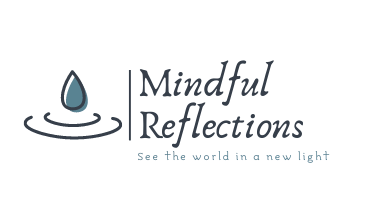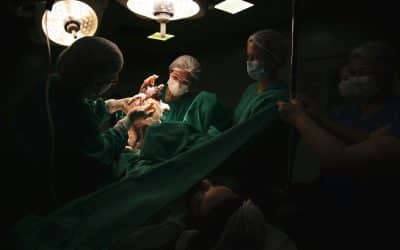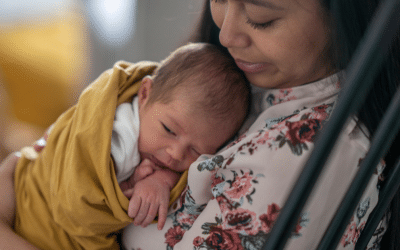Can You Have Postpartum Depression After Miscarriage?
Miscarriage is a profound and often isolating experience. For many, the emotional impact is deeply personal and raw, filled with waves of grief, guilt, and unanswered questions. While society has become more open about discussing mental health, the intersection of miscarriage and postpartum depression (PPD) is still shrouded in silence. This silence can leave individuals struggling alone, unsure of how to process their emotions or seek support. Let’s break that silence by exploring the connection between miscarriage and postpartum depression and validating the experiences of those navigating this challenging journey.
What Is Postpartum Depression?
Postpartum depression is a mood disorder that occurs after pregnancy. It’s more than just feeling “blue” or sad—it’s a condition that can disrupt daily life. Common symptoms include overwhelming sadness, anxiety, difficulty bonding with others, trouble sleeping, and even intrusive thoughts. While PPD is often associated with the postpartum period following a live birth, it’s important to recognize that it can also affect those who have experienced pregnancy loss.
The Emotional and Physical Impact of Miscarriage
The experience of miscarriage carries a profound emotional and physical toll, one that can ripple through every aspect of life. For many, the grief that follows a miscarriage is complex and multifaceted. It’s not simply sadness but a deep mourning for what was lost—the dreams, the plans, and the envisioned future. This grief can be accompanied by a sense of emptiness or disconnection, as if a piece of oneself has been irrevocably taken away.
Guilt often accompanies grief, creating an internal narrative of blame. Questions like “Did I do something wrong?” or “Was it my fault?” can dominate the mind, even when the answers are beyond one’s control. These thoughts can be relentless, feeding feelings of inadequacy or failure and making it difficult to move forward. It’s important to remember that these feelings, while common, are rooted in the emotional weight of loss and not in reality.
The isolation that often comes with miscarriage can amplify these emotions. Despite its frequency, miscarriage remains a topic shrouded in silence, leaving many to grieve in solitude. Friends and family may not know what to say, or worse, may offer well-meaning but hurtful comments that minimize the loss. This lack of acknowledgment can leave individuals feeling invisible in their pain.
Physically, miscarriage is a significant event. Hormonal shifts that occur after pregnancy—even one that ends in loss—can lead to mood swings, fatigue, and emotional vulnerability. The body’s recovery process, which may include cramping, bleeding, and hormonal changes, serves as a constant reminder of what was lost, intertwining physical and emotional healing in a challenging way. For some, the physical toll may also bring medical complications or extended recovery periods, further complicating the path to emotional wellness.
A study published in BMC Psychiatry reported that depression affects about 10–20% of women following a miscarriage. These figures emphasize that miscarriage is not just a momentary event but a deeply impactful experience that can linger, both emotionally and physically. Recognizing and validating these challenges is an essential step toward healing and support.
Can Postpartum Depression Happen After Miscarriage?
Yes, postpartum depression can occur after a miscarriage. Although typically associated with live births, the hormonal shifts that contribute to PPD are also present after pregnancy loss. These shifts, combined with the emotional toll of grief, can create a perfect storm for depression. If left untreated, the psychological effects of miscarriage can persist long after the loss. For instance, a study by the University of Rochester Medical Center found that depression and anxiety experienced after a miscarriage can continue for years, even following the birth of a healthy child.
A systematic review published in BMC Pregnancy and Childbirth highlighted heightened levels of depression, anxiety, and PTSD in parents after stillbirth compared to those with live births. If you’ve experienced a miscarriage and are struggling emotionally, know that your feelings are valid and deserve attention. Talking to a postpartum depression therapist can help you navigate the feelings of loss and support as you heal physically and emotionally after the miscarriage.
Recognizing the Signs of Postpartum Depression After Miscarriage
It’s essential to recognize when grief may have developed into postpartum depression. Common signs include:
- Persistent sadness or crying spells
- Feelings of guilt or worthlessness
- Difficulty sleeping or sleeping too much
- Trouble concentrating or making decisions
- Intrusive or disturbing thoughts
If these feelings persist or feel overwhelming, reaching out for professional support can be a crucial step toward healing. Seeking help is not a sign of weakness; it’s a testament to your strength and resilience.
How to Cope and Heal After Miscarriage
Healing after miscarriage is a deeply personal process, but there are practical steps that can guide during this difficult season of life:
- Allow Yourself to Grieve: Acknowledge your loss and let yourself feel the emotions that come with it. Write a letter to your baby, create a memorial, or set aside time for reflection.
- Join a Support Group: Connecting with others who have experienced similar losses can provide a sense of understanding and community. Online forums or in-person groups can be safe spaces to share your story.
- Practice Mindfulness and Relaxation Techniques: Activities like meditation, deep breathing, or gentle yoga can help calm your mind and ground you in the present moment. For example, try a grounding exercise like the “5-4-3-2-1” technique: name five things you can see, four things you can touch, three things you can hear, two things you can smell, and one thing you can taste. This exercise can redirect overwhelming thoughts and bring your focus to the here and now..
- Keep a Journal: Writing down your thoughts and feelings can be a therapeutic way to process your emotions and track your healing journey.
- Set Boundaries: Protect your emotional well-being by setting limits with people or situations that feel overwhelming. It’s okay to say no to events or conversations that you’re not ready for.
- Seek Therapy or Counseling: A mental health professional can help you navigate the complex emotions of grief and identify ways to manage them. Consider finding a therapist who specializes in perinatal mental health.
Remember, healing is not linear. There will be good days and challenging days, but taking even small steps can help you move forward. Give yourself permission to seek the support you need and deserve.
Supporting a Loved One Experiencing PPD After Miscarriage
If someone you love is navigating the pain of miscarriage and PPD, here’s how you can help:
- Listen Without Judgment: Offer a compassionate ear without trying to fix their feelings.
- Validate Their Emotions: Phrases like “It’s okay to feel this way” or “Your feelings are valid” can be incredibly affirming.
- Offer Practical Help: Run errands, cook meals, or assist with childcare to ease their burden.
- Encourage Professional Support: Gently suggest they speak with a therapist if their struggles persist.
Breaking the Silence: Why This Conversation Matters
Talking openly about miscarriage and postpartum depression reduces stigma and fosters connection. Shared experiences create community, helping those who feel isolated realize they’re not alone. Normalizing these conversations is a powerful way to show that support is available and healing is possible.
You Are Not Alone
If you’re navigating the aftermath of miscarriage and feeling overwhelmed, remember this: you don’t have to face it alone. Seeking help is a brave and vital step toward healing. Whether through therapy, community support, or self-care, there are paths forward that can bring light back into your life. Together, we can break the silence and support one another through the complexities of loss and recovery.
Previous Posts
Complete Guide to Postpartum Depression
You are not alone.If you’ve found your way here, it’s likely that you — or someone you deeply care...
Postpartum Therapy for C-Section Recovery: Emotional Healing Beyond the Physical
For many mothers, a C-section can feel both miraculous and overwhelming. While the physical scars...
Exploring the Impact of Hormonal Changes on Postpartum Mental Health
Postpartum hormones: the rollercoaster you never signed up for. Becoming a mom is an incredible...





